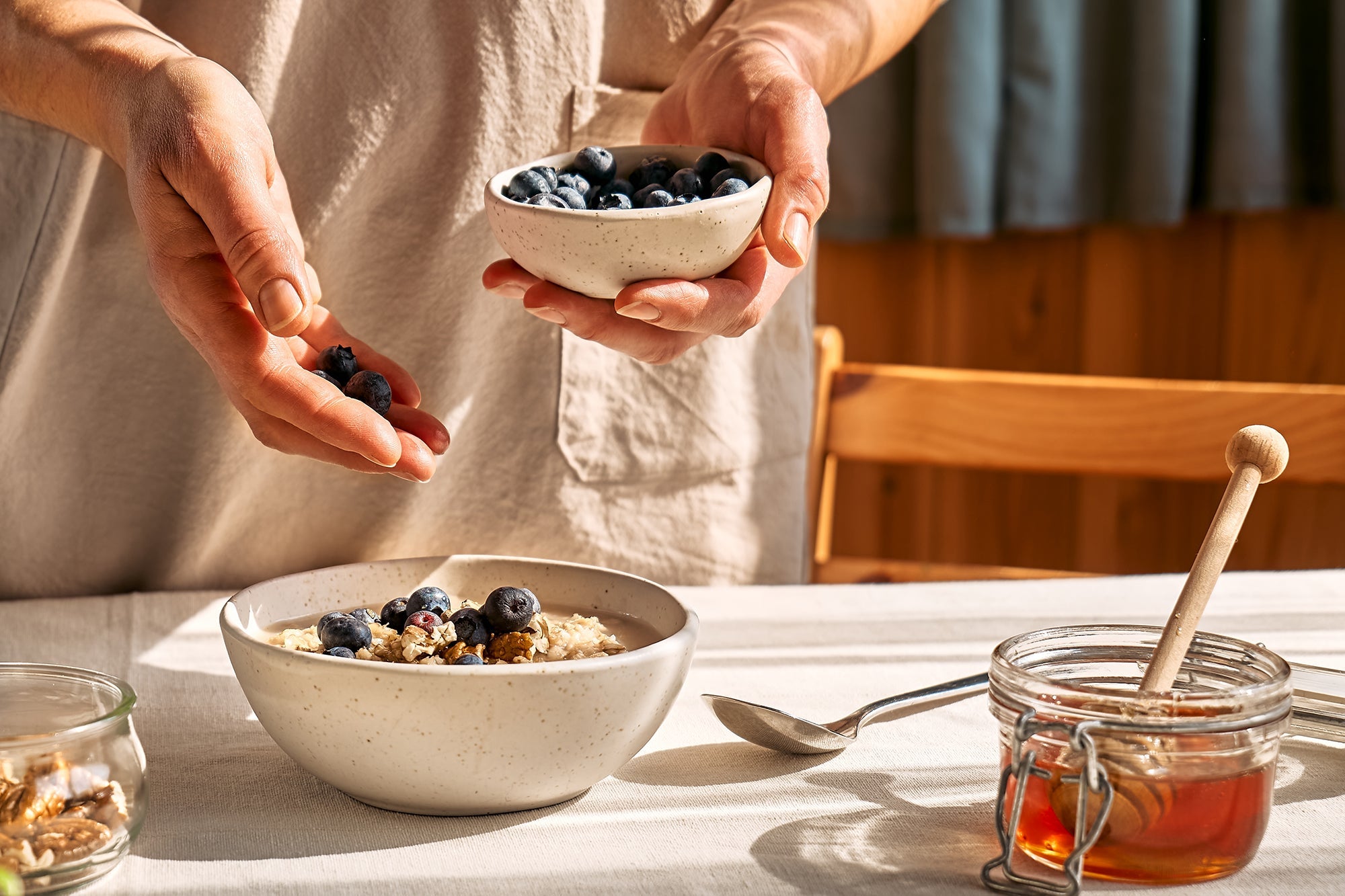Pregnancy is a transformative time, full of excitement and responsibility. The food choices you make directly affect your health and your baby’s growth and development. Proper nutrition lays the foundation for lifelong health while supporting your body through remarkable changes. Every nutrient contributes to building your baby’s brain, nervous system, bones, and vital organs. While a balanced diet is essential, busy schedules or changing appetites can make it hard to get everything you need from food alone. Trusted pregnancy supplements can help fill nutritional gaps.
Always speak to your healthcare practitioner before starting any supplements during pregnancy and ensure your nutrient needs are monitored and maintained throughout your pregnancy.
Understanding Pregnancy Nutrition
Your body is incredible during pregnancy, efficiently absorbing nutrients to support your growing baby. Every meal contributes to your baby’s first home, helping ensure healthy development. Research shows that good maternal nutrition is linked to healthier pregnancies, fewer complications, and better birth outcomes. Nutrients work together like a supportive team—whole, fresh foods should be your foundation, while understanding key nutrients and when supplements may help can give you confidence in your meal planning.
Essential Nutrients During Pregnancy
Folic Acid vs Folate
The different forms of folate can sometimes be confusing. Using the example of preparing a meal is a simple way to explain how each type of folate works in the body
· Folic acid = a bag of raw groceries. Your body needs a fully working kitchen (enzymes like MTHFR) to chop, cook, and transform them into a meal. For many people this works fine, but if the kitchen is missing tools or runs slowly (such as in the 1 in 3 women with MTHFR gene variants), not much gets cooked. 1
· Folinic acid = pre-chopped ingredients. They’re partly prepared and save your body some steps. You still need to do a little cooking, but it’s easier and quicker than starting from scratch.
· Methylated folate (5-MTHF) = the ready-to-eat meal. No cooking is required—it’s already in the active form your body can use right away to support DNA building, energy, and pregnancy health.
Folate supports DNA synthesis and cell division, making it essential during the rapid growth phases of early pregnancy (especially the first 28 days). Leafy greens and legumes provide excellent natural folate, but cooking can reduce their content by 30–50%. Including raw greens helps retain more folate, and taking a highly bioavailable daily supplement is the most reliable way to ensure consistent, adequate levels.
Iron
Iron needs nearly double during pregnancy to support increased blood volume and foetal development.
If you are considering an iron supplement, iron bisglycinate is a gentle, highly absorbable form. Unlike traditional iron salts (e.g., ferrous sulfate), it’s less likely to cause constipation or stomach upset, making it ideal for daily supplementation during pregnancy and postpartum.
Incorporate iron-rich foods like cooked clams and oysters, beef liver, red meat, cooked spinach, and lentils into your diet. Enhance iron absorption by consuming vitamin C-rich foods alongside iron sources, such as citrus fruits, green leafy salad, tomatoes, or capsicums and try to space out iron consumption from consumption of calcium rich foods, supplements or caffeine.
Calcium
Getting enough calcium during pregnancy is important for your baby’s developing bones and teeth, and for maintaining your own bone health. You can find calcium in dairy products, fortified plant-based milks, leafy greens, nuts, tahini, and sardines with bones.
If it’s difficult to meet your needs through diet alone, a highly bioavailable supplement—such as marine-sourced calcified Lithothamnion—can help.
Vitamin D
Vitamin D helps your body absorb calcium and supports bone development for both you and your baby.
Your body makes vitamin D from sun exposure, and it’s also found in fatty fish, fortified dairy, and egg yolks. Many pregnant women benefit from a prenatal supplement containing vitamin D—especially if sun exposure is limited—and a simple blood test can check your levels.
Omega-3 Fatty Acids
Omega-3s, especially DHA, are essential for your baby’s brain, eye, and central nervous system development, from gestation through the first two years. DHA from sn-2 rich sources is better absorbed, supporting both your baby’s neurological development and your own mental health.
B Vitamins & Vitamin C
B vitamins support energy metabolism, nervous system function, and red blood cell formation. Vitamin B6 may help reduce morning sickness, while B12 is crucial for neurological development. Vitamin C enhances iron absorption and supports immune function and collagen formation.
Colourful vegetables and fruits, lean proteins, and whole grains are typical sources of B vitamins and vitamin C. A varied diet typically meets these needs, though some women may benefit from a prenatal multivitamin supplement.
Choline
Often overlooked, choline is essential during pregnancy to support your baby’s brain and spinal cord development as well as supporting placental health. You can get choline from eggs, liver, and soybeans, among other foods. A prenatal choline supplement can also help boost your intake.
Building a Healthy Balanced Diet During Pregnancy
Creating a nourishing pregnancy diet is like painting with a palette of wholesome foods. Fill half your plate with colourful fruits and vegetables to get a variety of vitamins and antioxidants. Whole grains provide steady energy and B vitamins. Lean proteins help your little one grow strong, while dairy or fortified alternatives supply calcium for healthy bones and teeth.
Healthy fats are important too—avocados, chia seeds, raw nuts, and olive oil help absorb vitamins and provide essential fatty acids for your baby’s developing brain. Butter offers butyrate, supporting gut health, reducing inflammation, and promoting digestive and metabolic wellness.
As your baby grows, smaller, more frequent meals can be easier than three large ones. Eating five to six meals helps maintain steady energy and avoid feeling overly full.
Staying hydrated is vital - water supports increased blood volume, amniotic fluid, and can help reduce the risk of constipation. Aim for eight to ten glasses daily, adjusting for activity or warm weather. Listen to your body and nourish yourself with a variety of foods, creating a strong foundation for both you and your baby during this remarkable journey.
Sample Daily Meal Plan
· Breakfast: Muesli topped with sliced banana, chopped walnuts, and a dollop of Greek or coconut yoghurt, accompanied by a berry smoothie (with milk of your choice).
· Lunch: Quinoa salad with mixed greens, roasted sweet potato, grilled chicken breast, cherry tomatoes, cucumber, and avocado, dressed with olive oil and lemon juice, sprinkled with pepitas and macadamia nuts.
· Snack: Apple slices with almond butter and a small handful of dried apricots, dates, and prunes.
· Dinner: Grilled lamb cutlets with sweet potato mash and steamed (and buttered) green beans & broccoli.
· Snack: Chia pudding topped with granola or chopped Brazil nuts & dried goji berries.
This meal plan provides balanced nutrition while incorporating key pregnancy nutrients across multiple food groups.
Australian Dietary Guidelines for Pregnancy
The Australian Dietary Guidelines offer evidence-based advice for pregnant women, encouraging a variety of foods from all five food groups. Emphasise quality protein, colourful vegetables and fruits, whole grains, and dairy, while limiting sugary, processed, and deep-fried foods. Staying well-hydrated, primarily with water, is also important for supporting a healthy pregnancy.
Foods to Avoid During Pregnancy
Some foods and drinks carry risks during pregnancy. Avoid unpasteurised dairy, raw or undercooked meats and eggs due to bacteria like listeria. Avoid fish with high mercury levels (shark, swordfish, tuna) and keep caffeine under 200 mg daily. Alcohol should be completely avoided, as it can cause foetal alcohol spectrum disorders, leading to lifelong developmental challenges.
Safe Seafood Choices
Seafood provides excellent protein and omega-3 fatty acids, but choosing non-farmed, low-mercury options is essential. Wild-caught salmon and tinned fish (like sardines and mackerel) are good choices when consumed in appropriate portions. Always cook seafood thoroughly to eliminate bacteria and parasites. Avoid raw preparations like sushi or oysters during pregnancy.
Managing Pregnancy Symptoms Through Diet
· Morning sickness: Common in the first trimester; small, frequent meals and ginger may help.
· Heartburn: Often appears later; smaller meals, avoiding fruit after eating, limiting spicy foods, and staying upright can ease symptoms.
· Constipation: Can result from hormonal changes; increasing fibre from vegetables and whole grains, staying hydrated, gentle prebiotic supplements, and regular pregnancy-safe activity can support healthy digestion.
Role of Supplements in Pregnancy Nutrition
While nourishing whole foods are ideal, pregnancy symptoms or a busy life can make it hard to get all the nutrients you need from meals alone. Quality supplements can help ensure both you and your baby receive essential nutrients for optimal health. Needs vary—some may require extra iron or vitamin D. Evidence-based pregnancy supplements are specifically formulated and rigorously tested to support expecting mothers. Always consult your healthcare practitioner before starting any supplements during pregnancy to build your specific nutrition plan and ensure your nutrient levels are being monitored and managed appropriately throughout each trimester.
Frequently Asked Questions (FAQs)
1. What are the essential nutrients needed during pregnancy?
Key nutrients include folate, iron, calcium, vitamin D, omega-3 fatty acids, B vitamins, vitamin C, and choline.
2. What foods should I avoid during pregnancy?
Avoid unpasteurized dairy, raw/undercooked meats and eggs, high-mercury fish, excessive caffeine, alcohol, and deli meats.
3. How much weight should I gain during pregnancy?
Weight gain depends on pre-pregnancy BMI: 11.5–16 kg for normal weight, 7–11.5 kg for overweight, and 5–9 kg for obese women. Consult your healthcare practitioner for what is considered healthy for you.
4. Which foods should I eat for proper pregnancy nutrition?
Focus on good-quality protein, colourful vegetables and fruits, raw nuts, seeds, dairy products, and whole grains.
5. Can following a nutritious diet during pregnancy reduce fatigue?
Yes, balanced nutrition with adequate iron, B vitamins, complex carbohydrates, water, and regular meals helps maintain stable energy levels and reduces pregnancy-related fatigue.
Conclusion
Taking care of your nutrition during pregnancy is one of the most meaningful investments for both your baby’s future health and your own wellbeing. Every nutritious meal supports your little one’s development and keeps you strong throughout this journey. Each pregnancy is unique, so focus on what works for your lifestyle and needs. Partner with your healthcare provider to create a personalised plan, including the right supplements. Prioritising nutrition now gives your baby a healthy start, keeps you energized, and helps build lasting healthy habits for your whole family.
References:
1. Folic acid versus 5- methyl tetrahydrofolate supplementation in pregnancy - ScienceDirect )
2. (Kofron et al., 2008: In pregnant women, iron bisglycinate improved hemoglobin with significantly lower gastrointestinal adverse events versus traditional iron salts. J Perinat Med. 2008;36(5): 388–393).








